
17 Aug 2017 | Focolare Worldwide
 Builders of peace “In a situation of extreme crisis which the country is undergoing, we want to help each other lives as authentic Christians. In Valencia, the city most struck by plunders, we experienced days of confusion and mass hysteria. Many industrial zones were savagely ransacked without the intervention of the police. We even saw the same army incite the plunder of shops, even bringing trucks and equipment. The city is blocked, there are arrests and a tense climate, anger and hunger. In the meantime, in the family and with other friends we are trying to support to one another and convey hope, without judging those who have taken away all sorts of items from the stores, even kitchen appliance and auto components. But we are also witnessing the help of Divine Providence with the arrival of medicine and food for entire families. It is amazing how God’s love watches over us, his children.” (O.T. – Venezuela) Cook “As a cook, I like to imagine life as an exercise to reach the banquet in Heaven, Didn’t Jesus start his public life with a wedding banquet in Cana? Didn’t he take part in many banquets, up to the last supper, and promised a final banquet in which, certainly, many cooks like will find their seats? In my service in the kitchen, the objective is not so much the dish in itself, but the people who will taste the fruit of my work. I try not to work only in view of my career, but to be a good husband and father, but for God.” (V. – Italy) The “trick” «In the apartment I share with other students, cohabitation isn’t always easy t because their habits are very different from mine. One day, discouraged, I was thinking of finding another lodging, when my girlfriend suggested that I take the initiative to do something for my co-boarders. She herself helped me bake a cake. Such a simple gesture! And yet, it helped to ease our relationships, in such a way that a kind of competition to help one another started among us. Now I know the “trick” whenever some difficulties arise: I can start by being the first to love.” (B. C. – Czech Republic) Real poverty “I have a disabled friend who gets a minimum pension and is isolated by his brothers and sisters. One day he told me: “I bought a pair of shoes for G. and every day I offer him breakfast at the bar. Now I am thinking of paying for his denture.” He does such acts daily and yet they say he is antisocial and that he is even short of mind. Instead the goodness of this man, in his conditions, is able to pay attention to others’ needs, always moves me. One day he said “When someone suffers, I feel that he resembles me a lot. And being able to help him makes me feel alive and fulfilled.” (T. – Italy)
Builders of peace “In a situation of extreme crisis which the country is undergoing, we want to help each other lives as authentic Christians. In Valencia, the city most struck by plunders, we experienced days of confusion and mass hysteria. Many industrial zones were savagely ransacked without the intervention of the police. We even saw the same army incite the plunder of shops, even bringing trucks and equipment. The city is blocked, there are arrests and a tense climate, anger and hunger. In the meantime, in the family and with other friends we are trying to support to one another and convey hope, without judging those who have taken away all sorts of items from the stores, even kitchen appliance and auto components. But we are also witnessing the help of Divine Providence with the arrival of medicine and food for entire families. It is amazing how God’s love watches over us, his children.” (O.T. – Venezuela) Cook “As a cook, I like to imagine life as an exercise to reach the banquet in Heaven, Didn’t Jesus start his public life with a wedding banquet in Cana? Didn’t he take part in many banquets, up to the last supper, and promised a final banquet in which, certainly, many cooks like will find their seats? In my service in the kitchen, the objective is not so much the dish in itself, but the people who will taste the fruit of my work. I try not to work only in view of my career, but to be a good husband and father, but for God.” (V. – Italy) The “trick” «In the apartment I share with other students, cohabitation isn’t always easy t because their habits are very different from mine. One day, discouraged, I was thinking of finding another lodging, when my girlfriend suggested that I take the initiative to do something for my co-boarders. She herself helped me bake a cake. Such a simple gesture! And yet, it helped to ease our relationships, in such a way that a kind of competition to help one another started among us. Now I know the “trick” whenever some difficulties arise: I can start by being the first to love.” (B. C. – Czech Republic) Real poverty “I have a disabled friend who gets a minimum pension and is isolated by his brothers and sisters. One day he told me: “I bought a pair of shoes for G. and every day I offer him breakfast at the bar. Now I am thinking of paying for his denture.” He does such acts daily and yet they say he is antisocial and that he is even short of mind. Instead the goodness of this man, in his conditions, is able to pay attention to others’ needs, always moves me. One day he said “When someone suffers, I feel that he resembles me a lot. And being able to help him makes me feel alive and fulfilled.” (T. – Italy)
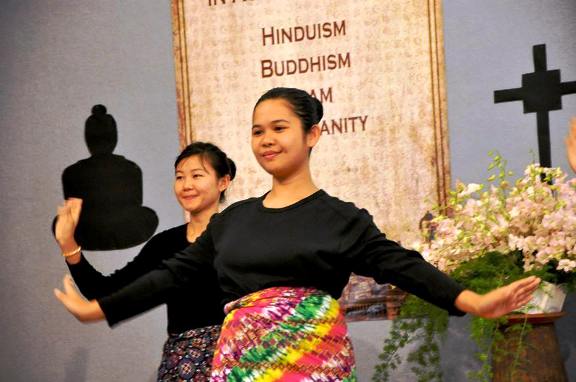
10 Aug 2017 | Focolare Worldwide
Arr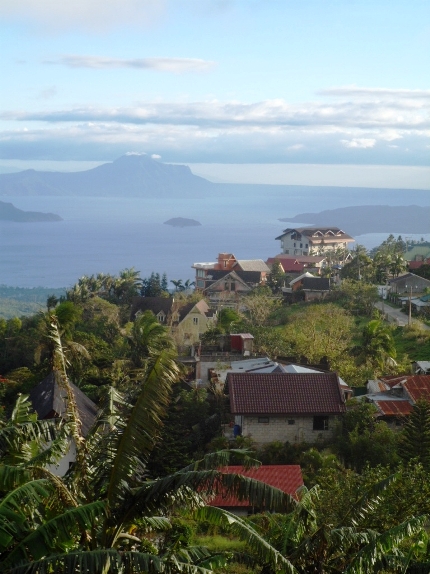 iving from Manila 60 km away, your first sensation as you come upon the region of Lake Taal on the island of Luzon is one of deep peace. Visitors are enchanted by such a unique sight: a lake whose waters have filled an ancient caldera with an island in its midst. That island, in turn, which is set in a more recent crater, has another much smaller lake. And at the centre of that small water mirror sits another island. It has that Russian doll effect with one lake contained inside the other. From the top of the volcano the view extends over green hills of fields and forests, pineapple, coffee and endless varieties of banana plantations and tropical flowers.
iving from Manila 60 km away, your first sensation as you come upon the region of Lake Taal on the island of Luzon is one of deep peace. Visitors are enchanted by such a unique sight: a lake whose waters have filled an ancient caldera with an island in its midst. That island, in turn, which is set in a more recent crater, has another much smaller lake. And at the centre of that small water mirror sits another island. It has that Russian doll effect with one lake contained inside the other. From the top of the volcano the view extends over green hills of fields and forests, pineapple, coffee and endless varieties of banana plantations and tropical flowers. 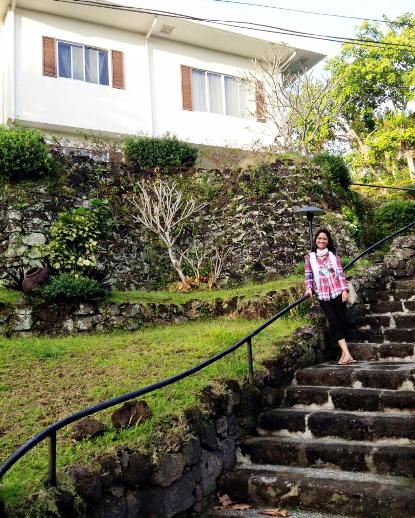 Ever since 1982 visitors have had the same sensation among the streets and buildings of Mariapolis Peace in Tagaytay, which was the first permanent Mariapolis in Asia. “I have a dream,” exclaimed Chiara Lubich that year, as she observed the hills of Tagaytay: “that precisely there, a Focolare town would rise where the Gospel would be lived out in a steady way in order to give a picture of what the world would be like if we all lived the Gospel. The presence of the Focolare in Tagaytay is, however, far farther in time. The Focolare’s presence in the Philippines goes back much further in time. Already in 1966, the first meetings of Focolare members were being held in Tagaytay. Taken by the beauty of the natural surroundings, those members had prayed that one day there would be a centre for gatherings of Focolare members in that place, a “home for all of them”. Thanks to a generous donation the following year, that dream began to come true and take shape in 1975. Then came the events and dream in 1982, with the coincidental invitation to the Focolare Movement by the Philippine Bishops Conference to build, right there in the vicinity of Tagaytay, a “school” for Asian priests. Ever since then the development has been unexpectedly surprising. In particular, among the ten constructions that have been erected, there is a school of dialogue with the Great Religions of Asia, geared particularly towards Muslims and Buddhists, but also Hindus and Shintoists. Every year Buddhist youths from a lay Japanese association converge on the property to experience the joy of living living life together. Recently, in May, 200 members of the Great Religions from 13 Asian countries attended the School of Oriental Religions (SOR).
Ever since 1982 visitors have had the same sensation among the streets and buildings of Mariapolis Peace in Tagaytay, which was the first permanent Mariapolis in Asia. “I have a dream,” exclaimed Chiara Lubich that year, as she observed the hills of Tagaytay: “that precisely there, a Focolare town would rise where the Gospel would be lived out in a steady way in order to give a picture of what the world would be like if we all lived the Gospel. The presence of the Focolare in Tagaytay is, however, far farther in time. The Focolare’s presence in the Philippines goes back much further in time. Already in 1966, the first meetings of Focolare members were being held in Tagaytay. Taken by the beauty of the natural surroundings, those members had prayed that one day there would be a centre for gatherings of Focolare members in that place, a “home for all of them”. Thanks to a generous donation the following year, that dream began to come true and take shape in 1975. Then came the events and dream in 1982, with the coincidental invitation to the Focolare Movement by the Philippine Bishops Conference to build, right there in the vicinity of Tagaytay, a “school” for Asian priests. Ever since then the development has been unexpectedly surprising. In particular, among the ten constructions that have been erected, there is a school of dialogue with the Great Religions of Asia, geared particularly towards Muslims and Buddhists, but also Hindus and Shintoists. Every year Buddhist youths from a lay Japanese association converge on the property to experience the joy of living living life together. Recently, in May, 200 members of the Great Religions from 13 Asian countries attended the School of Oriental Religions (SOR).  From its founding, Mariapolis Pace has assumed the profile of a centre for human development, becoming one of the venues of the Bukas Palad Foundation, a non-profit NGO, founded near Manila in 1983 to respond to the social and sanitary needs of the poorest sections of the population, especially in rural regions. Entire families live in precarious situations – often in one-room homes with dirt floors and no running water – with little or no access to medical care and scarce job opportunities. With their motto: “Freely we have received; freely we give,” Bukas Palad (with open hands), has been on course for more than thirty years, improving the quality of life for thousands of people, not only medically, but also humanly and spiritualy, with an integrated and holistic approach focused on human health and development. The workshops are currently a highlight of the Mariapolis, which adhere to the Economy of Communion Project, with the hospital volunteer activities in several public health structures, along with the lively testimony of workers in the media and several education projects. The experiences of dialogue and sharing grow and multiply like the water in a lake that is replicated in other mirrors of water. But the reflections of Mariapolis Peace cannot be counted.
From its founding, Mariapolis Pace has assumed the profile of a centre for human development, becoming one of the venues of the Bukas Palad Foundation, a non-profit NGO, founded near Manila in 1983 to respond to the social and sanitary needs of the poorest sections of the population, especially in rural regions. Entire families live in precarious situations – often in one-room homes with dirt floors and no running water – with little or no access to medical care and scarce job opportunities. With their motto: “Freely we have received; freely we give,” Bukas Palad (with open hands), has been on course for more than thirty years, improving the quality of life for thousands of people, not only medically, but also humanly and spiritualy, with an integrated and holistic approach focused on human health and development. The workshops are currently a highlight of the Mariapolis, which adhere to the Economy of Communion Project, with the hospital volunteer activities in several public health structures, along with the lively testimony of workers in the media and several education projects. The experiences of dialogue and sharing grow and multiply like the water in a lake that is replicated in other mirrors of water. But the reflections of Mariapolis Peace cannot be counted.
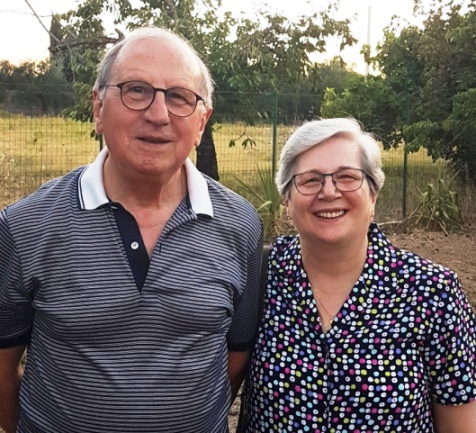
9 Aug 2017 | Focolare Worldwide
 As a child, I loved to tune in to Vatican Radio in the evenings, which would broadcast news in various foreign languages. Naturally, I didn’t know any of those languages, but listening fascinated me. It seemed like my heart was expanding to all humanity, its people and their everyday lives. It was during one of these evenings that I happened to hear Pope Pius XII invoke the name of God three times: “God, God, God!” That cry was imprinted on my conscience, even if, with the passing of time, it dimmed and was lost to memory. This was 1956. Nine years later, in January 1963, I found myself in Turin, in the military. A bunkmate invited me to a conference, which, strangely enough, I didn’t ask anything about beforehand. As I requested permission from my superiors, I found myself asking as if my whole life depended on it. When they unexpectedly agreed, I left for Ala di Stura, a small mountain village in a marvelous corner of nature. After having been welcomed by those present as if we had always known one another, it was there that I met Chiara Lubich – the founder of Focolare – and Igino Giordani, a co-founder. It made a strong impression on me to meet people from different cultures and religions. I also was able to meet during that time, since she was also hosted by Focolare, Assunta Roncalli, who was Pope John XXIII’s sister. He died that same year on June 3, 1963. One morning Chiara spoke about a new calling that had started in the movement. It was only when she explained the year and circumstances of how it had begun that something urgently returned to mind: “God, God, God! God will help you, God will be your strength. May this indescribable name resound, the source of every right, justice and freedom, in parliaments, squares, houses and offices…” That was what the pope said in his radio message on November 10, 1956, when the revolution in Hungary was crushed. “There was a society that erased the name of God, the reality of God, the providence of God, and the love of God from people’s hearts,” Chiara commented. “So there must be a society that is able to return him to his rightful place. Is it possible that the devil has his faithful followers, totalitarians, pseudo-martyrs for his cause, and God not have a small army of Christians that give everything to take back the world for him? Chiara responded to that call of the pope with her intuition to gather women and men of all ages, nationalities, conditions, bound by a single link: that of universal fraternity. They would form an army of volunteers, the Volunteers of God, part of the Focolare Movement that today is present in 182 countries. It is a modern, radical calling. Chiara Lubich gives it an additional fascinating touch when she describes it as the “attraction of modern times”: “To achieve the highest contemplation while remaining mixed in the crowd, side by side with people… to shine embellishing light on everyone, and at the same time, share with our neighbors their shame, fame, bruises and brief joys.” Igino Giordani compares it to “sanctity in worker’s clothing, spurred to bring God in parliament, in local councils, in hospitals, schools, offices, shops, studios, home, on the bocce field, but also in the world of art, communication, science, economics…” Because, he adds, “to bring God to these places means transforming them into abbeys, changing them into holy places where each day a special mass is celebrated!” Fifty-four years have passed since that day I heard the call to enroll with the Volunteers of God, who were born from a charism that, because it is genuine, can be measured by its tangible results in culture, society, economics, politics… so that the various areas of life do not remain mediocre, hopeless, divided and callous, but open to welcome the deep presence of God. Gennaro Piccolo, “A way for unity,” Centro Igino Giordani, Andria, Italy
As a child, I loved to tune in to Vatican Radio in the evenings, which would broadcast news in various foreign languages. Naturally, I didn’t know any of those languages, but listening fascinated me. It seemed like my heart was expanding to all humanity, its people and their everyday lives. It was during one of these evenings that I happened to hear Pope Pius XII invoke the name of God three times: “God, God, God!” That cry was imprinted on my conscience, even if, with the passing of time, it dimmed and was lost to memory. This was 1956. Nine years later, in January 1963, I found myself in Turin, in the military. A bunkmate invited me to a conference, which, strangely enough, I didn’t ask anything about beforehand. As I requested permission from my superiors, I found myself asking as if my whole life depended on it. When they unexpectedly agreed, I left for Ala di Stura, a small mountain village in a marvelous corner of nature. After having been welcomed by those present as if we had always known one another, it was there that I met Chiara Lubich – the founder of Focolare – and Igino Giordani, a co-founder. It made a strong impression on me to meet people from different cultures and religions. I also was able to meet during that time, since she was also hosted by Focolare, Assunta Roncalli, who was Pope John XXIII’s sister. He died that same year on June 3, 1963. One morning Chiara spoke about a new calling that had started in the movement. It was only when she explained the year and circumstances of how it had begun that something urgently returned to mind: “God, God, God! God will help you, God will be your strength. May this indescribable name resound, the source of every right, justice and freedom, in parliaments, squares, houses and offices…” That was what the pope said in his radio message on November 10, 1956, when the revolution in Hungary was crushed. “There was a society that erased the name of God, the reality of God, the providence of God, and the love of God from people’s hearts,” Chiara commented. “So there must be a society that is able to return him to his rightful place. Is it possible that the devil has his faithful followers, totalitarians, pseudo-martyrs for his cause, and God not have a small army of Christians that give everything to take back the world for him? Chiara responded to that call of the pope with her intuition to gather women and men of all ages, nationalities, conditions, bound by a single link: that of universal fraternity. They would form an army of volunteers, the Volunteers of God, part of the Focolare Movement that today is present in 182 countries. It is a modern, radical calling. Chiara Lubich gives it an additional fascinating touch when she describes it as the “attraction of modern times”: “To achieve the highest contemplation while remaining mixed in the crowd, side by side with people… to shine embellishing light on everyone, and at the same time, share with our neighbors their shame, fame, bruises and brief joys.” Igino Giordani compares it to “sanctity in worker’s clothing, spurred to bring God in parliament, in local councils, in hospitals, schools, offices, shops, studios, home, on the bocce field, but also in the world of art, communication, science, economics…” Because, he adds, “to bring God to these places means transforming them into abbeys, changing them into holy places where each day a special mass is celebrated!” Fifty-four years have passed since that day I heard the call to enroll with the Volunteers of God, who were born from a charism that, because it is genuine, can be measured by its tangible results in culture, society, economics, politics… so that the various areas of life do not remain mediocre, hopeless, divided and callous, but open to welcome the deep presence of God. Gennaro Piccolo, “A way for unity,” Centro Igino Giordani, Andria, Italy
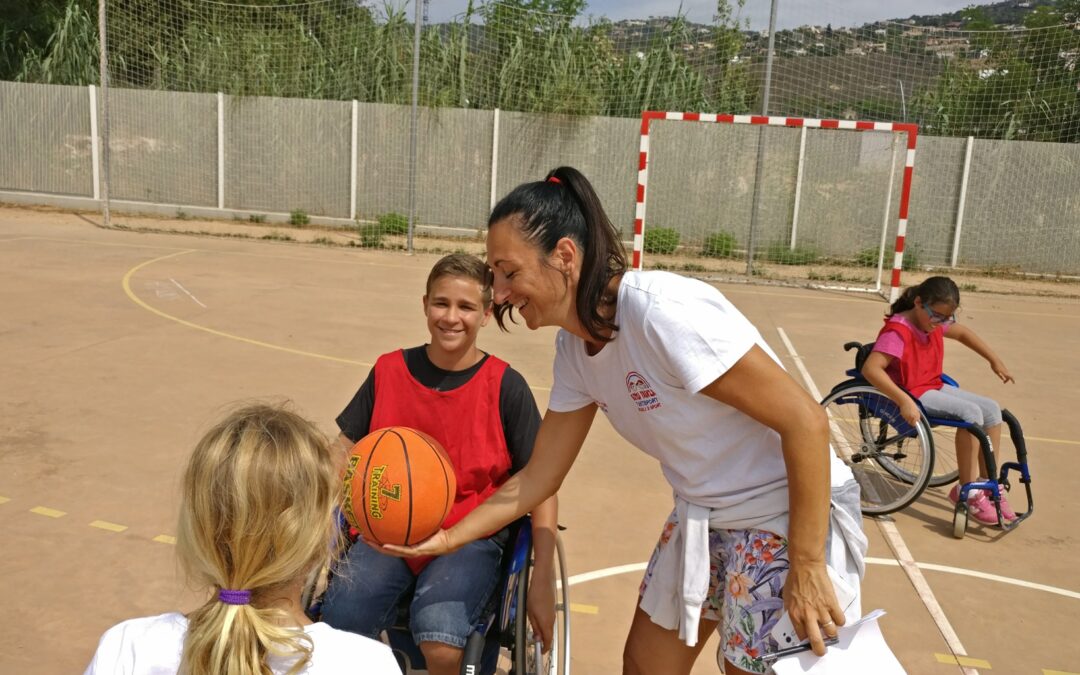
7 Aug 2017 | Focolare Worldwide, Senza categoria
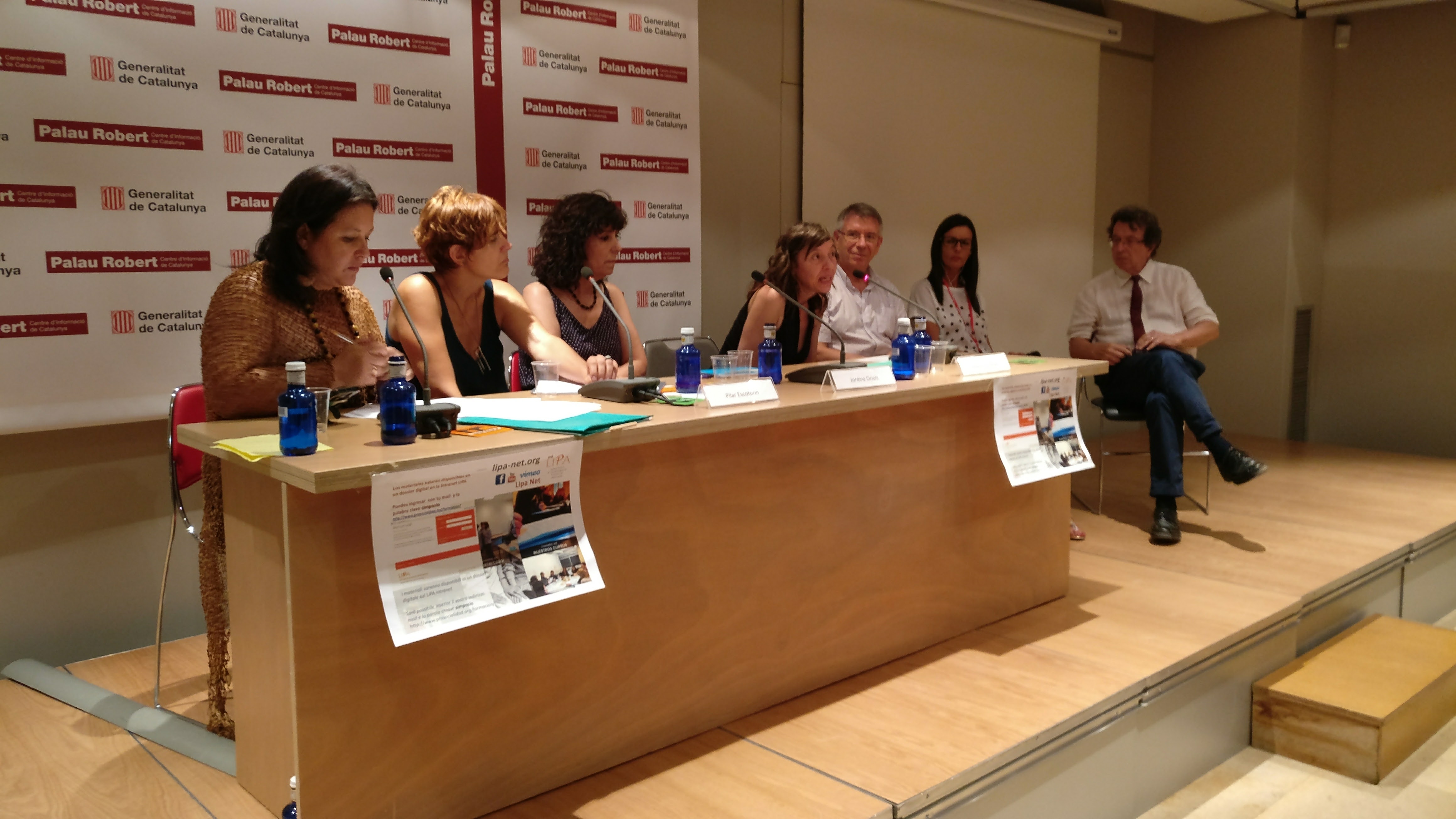 On July 13, 2017, seventy people from various places in Spain, Italy and Croatia attended the “Inclusive Schools, Social Innovation, Childhood and Sport Symposium” which was held at the Palau Robert Gardens of Barcelona. The event was organized by the Laboratorio de Investigación Prosocial Aplicada (LIPA), Universitat Autònoma de Barcelona and by the Sportmeet International Network. Teachers, physiotherapists and sport players took a closer look at projects that promote inclusion, intervention models and disability from the standpoint of inclusion, in the belief that no part of life is not worth living. Life needs to have a place for weakness, to experience, through weakness, one’s own ability to recuperate. In the days that followed, the Mariapolis Centre of Castell d’Aro provided the forum for the Summer School in which topics regarding inclusive sport were examined and discussed. Twenty people attended and were guided through the experience by experts Eugenio Jimènez and Dr Javier Lamoneda. Through games they learned what it’s like to be in the shoes of a person with a disability. By its very nature sport is an everyday opportunity to come face to face with limitations, and offers opportunities for reflection on the obstacles of life, suffering and disadvantage. The reflections that were presented by Paolo Crepaz from Sportmeet led the participants to question the concepts of limitation, barriers, obstacles, suffering and disadvantage from the standpoint of things that can be turned into potential, an opportunity to “constantly tend, by force of habit, towards universal brotherhood” (Chiara Lubich).
On July 13, 2017, seventy people from various places in Spain, Italy and Croatia attended the “Inclusive Schools, Social Innovation, Childhood and Sport Symposium” which was held at the Palau Robert Gardens of Barcelona. The event was organized by the Laboratorio de Investigación Prosocial Aplicada (LIPA), Universitat Autònoma de Barcelona and by the Sportmeet International Network. Teachers, physiotherapists and sport players took a closer look at projects that promote inclusion, intervention models and disability from the standpoint of inclusion, in the belief that no part of life is not worth living. Life needs to have a place for weakness, to experience, through weakness, one’s own ability to recuperate. In the days that followed, the Mariapolis Centre of Castell d’Aro provided the forum for the Summer School in which topics regarding inclusive sport were examined and discussed. Twenty people attended and were guided through the experience by experts Eugenio Jimènez and Dr Javier Lamoneda. Through games they learned what it’s like to be in the shoes of a person with a disability. By its very nature sport is an everyday opportunity to come face to face with limitations, and offers opportunities for reflection on the obstacles of life, suffering and disadvantage. The reflections that were presented by Paolo Crepaz from Sportmeet led the participants to question the concepts of limitation, barriers, obstacles, suffering and disadvantage from the standpoint of things that can be turned into potential, an opportunity to “constantly tend, by force of habit, towards universal brotherhood” (Chiara Lubich). 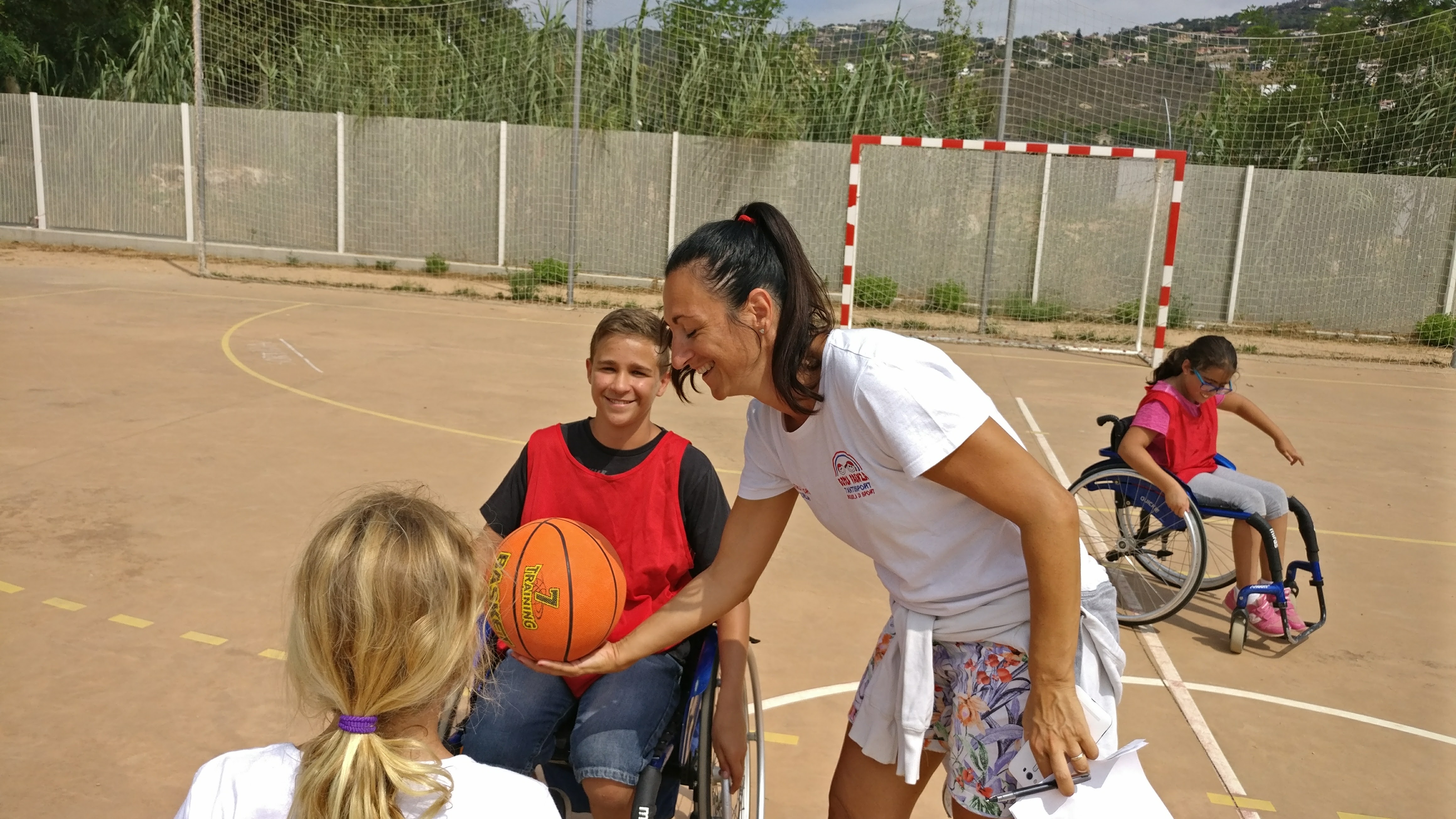 Sport’s ability to get us to face and overcome obstacles, to be inclusive, to struggle against all sorts of barriers and in every social context is quite striking. For example, what a small ball can do in uniting people on an isolated summer field or inside a refugee camp. Players come face to face with one another within an atmosphere of mutual trust and esteem. Javier Lamoneda Prieto, professor of Physical Education, in Jerez de la Frontera, Spain, shared his own experience: “It seems like a team has formed over these days, a team that would like physical activity to become a source of encounter between different actors and sport professionals. It is the first time such a training course has been developed by the public university.” Roberto Niccolis, a sport operative from Verona, Italy: “The limit that I often encounter is that of the distance that separates people from each other; the handicap, I mean. Reducing this distance through sharing, getting to know one another and experiences with one another other make us feel closer.” Roberto Macri, President of the Opera Santa Rita Foundation, Prato, Italy: “Above all, you’ve created an opportunity for reflecting on ourselves and the values that emerge from our work. Not only our professional or volunteer work, but more generally what can give deeper meaning to being men or women.”
Sport’s ability to get us to face and overcome obstacles, to be inclusive, to struggle against all sorts of barriers and in every social context is quite striking. For example, what a small ball can do in uniting people on an isolated summer field or inside a refugee camp. Players come face to face with one another within an atmosphere of mutual trust and esteem. Javier Lamoneda Prieto, professor of Physical Education, in Jerez de la Frontera, Spain, shared his own experience: “It seems like a team has formed over these days, a team that would like physical activity to become a source of encounter between different actors and sport professionals. It is the first time such a training course has been developed by the public university.” Roberto Niccolis, a sport operative from Verona, Italy: “The limit that I often encounter is that of the distance that separates people from each other; the handicap, I mean. Reducing this distance through sharing, getting to know one another and experiences with one another other make us feel closer.” Roberto Macri, President of the Opera Santa Rita Foundation, Prato, Italy: “Above all, you’ve created an opportunity for reflecting on ourselves and the values that emerge from our work. Not only our professional or volunteer work, but more generally what can give deeper meaning to being men or women.”
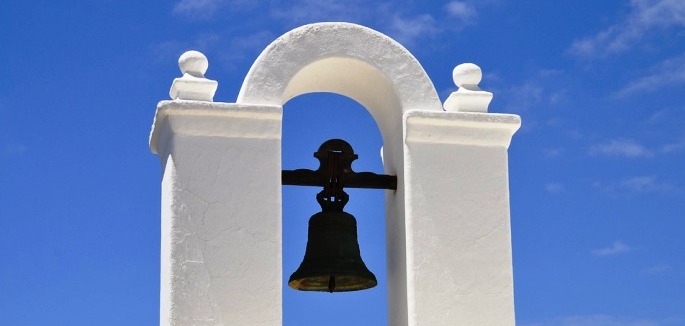
3 Aug 2017 | Focolare Worldwide
A book for the exam “I study architecture. I had a very important exam to take, but I was missing a fundamental book. Since I was from Spain, it cost four times the normal price. It was the last day to sign up for that exam and I was desperate. I left the university and ran to a nearby church, where I asked Jesus for help, praying for him to get me that book ‘by midday.’ Shortly after, back at the department, I heard someone calling me: it was a colleague I had not seen for some time. Hearing of my problem, he insisted coming with me to a another student’s house – someone I hardly knew. She had that book, and was even happy to lend it to me. It was midday. Some days later, seeing that there were typographic errors and important pages missing, I wrote to the publishing house via email. To thank me, a week later the publisher couriered me a free copy. How could I not see the love of God in all this?” (S. G., Argentina) Stepping in my husband’s shoes “After work my husband often lays down on the sofa to watch a movie. This creates tension and anger inside me, since I expect a bit of help after a day of being busy with the children and everything else that happens. One day, urged on by advice I received from some friends to start loving him first without expecting anything, I tried to put myself in his shoes. I thought about his work committments and his need to find tenderness and understanding at home. Setting aside everything I was doing, I sat down next to him to watch a film, and we shared our ideas about it.” (G. G., Siberia) Mutual help “My neighbor’s husband was hospitalized. His 70-year-old brother was left alone at home, and he doesn’t cook at all. Despite the fact that during that time my own husband and mother had the flu, I offered to look after him. For 15 days, as I took care of my sick family, I also cooked for him, and on Sunday I invited him to lunch at our house. He responded in turn by bringing some foodstuffs that he had. He became one of the family.” (C., Italy) Asking forgiveness “Since I have a tough, authoritarian and independent character, I typically judge people. This way of being made it difficult to relate to others, especially my husband. Some time ago I found myself participating in a meeting that was about going deeper into the words of the Gospel. There my certainties were shaken. I decided to start living those words at work, where I direct personnel in a large warehouse with more than 30 employees. I had a strong aversion to one employee in particular. When it was his turn to get paid, I used to throw the envelope with the money on his desk. This time? I tried to see him differently, as if I had put on new glasses. Making an effort, I approached him and in front of everyone asked him to forgive me. It was one of the greatest joys I had ever experienced.” (D., Brazil)
book for the exam “I study architecture. I had a very important exam to take, but I was missing a fundamental book. Since I was from Spain, it cost four times the normal price. It was the last day to sign up for that exam and I was desperate. I left the university and ran to a nearby church, where I asked Jesus for help, praying for him to get me that book ‘by midday.’ Shortly after, back at the department, I heard someone calling me: it was a colleague I had not seen for some time. Hearing of my problem, he insisted coming with me to a another student’s house – someone I hardly knew. She had that book, and was even happy to lend it to me. It was midday. Some days later, seeing that there were typographic errors and important pages missing, I wrote to the publishing house via email. To thank me, a week later the publisher couriered me a free copy. How could I not see the love of God in all this?” (S. G., Argentina) Stepping in my husband’s shoes “After work my husband often lays down on the sofa to watch a movie. This creates tension and anger inside me, since I expect a bit of help after a day of being busy with the children and everything else that happens. One day, urged on by advice I received from some friends to start loving him first without expecting anything, I tried to put myself in his shoes. I thought about his work committments and his need to find tenderness and understanding at home. Setting aside everything I was doing, I sat down next to him to watch a film, and we shared our ideas about it.” (G. G., Siberia) Mutual help “My neighbor’s husband was hospitalized. His 70-year-old brother was left alone at home, and he doesn’t cook at all. Despite the fact that during that time my own husband and mother had the flu, I offered to look after him. For 15 days, as I took care of my sick family, I also cooked for him, and on Sunday I invited him to lunch at our house. He responded in turn by bringing some foodstuffs that he had. He became one of the family.” (C., Italy) Asking forgiveness “Since I have a tough, authoritarian and independent character, I typically judge people. This way of being made it difficult to relate to others, especially my husband. Some time ago I found myself participating in a meeting that was about going deeper into the words of the Gospel. There my certainties were shaken. I decided to start living those words at work, where I direct personnel in a large warehouse with more than 30 employees. I had a strong aversion to one employee in particular. When it was his turn to get paid, I used to throw the envelope with the money on his desk. This time? I tried to see him differently, as if I had put on new glasses. Making an effort, I approached him and in front of everyone asked him to forgive me. It was one of the greatest joys I had ever experienced.” (D., Brazil)
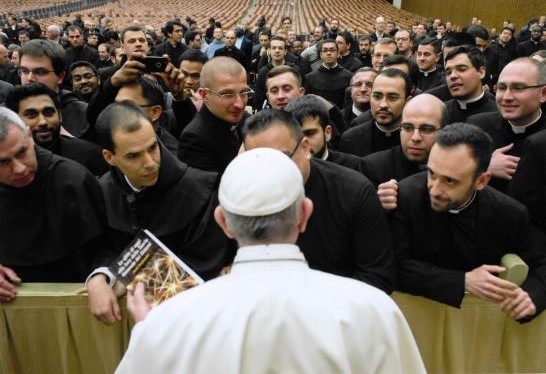
1 Aug 2017 | Focolare Worldwide
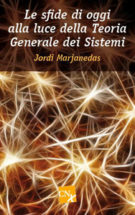 The term “system” is perhaps among the most used in our language. Almost without realising, it always seems to crop up, whether we’re talking about elections, football pools, stars, units of measure, politics, irrigation, the kids’ algebra homework, security, transportation, medicines or mountain chains. Simple or complex, nerves or finances, a “system” (from the Greek systema, to combine) is always on our lips. In 1937, and more “systematically” in 1945, an Austrian biologist named Ludwig von Bertalanffy (b. Vienna, 1901–d. Buffalo, New York, 1972) was the first to announce General Systems Theory, a method for reading into and interpreting the world as it exists. “Every organism is a dynamic order of processes that reciprocally act on each other.” Jordi Marjanedas, from Catalonia, class of 1940, has scrupulously dedicated himself this theory in his recent volume entitled, Today’s Challenges in the Light of General Systems Theory, published by Città Nuova. The text stretches from biology to the life of the universe, from ecology to anthropology, from history to ethics, to social sciences and religion, searching every field of knowledge for elements of integration and cohesion, according to a unified vision of humanity and creation. Why is systems theory so important? The development of modern science brought about a proliferation of knowledge that is partial, fragmented and hyper-specialized. To the point that, ironically, to the writer G. K. Chesterton it seemed that “eventually they end up knowing everything about nothing.” In medicine, for example, a human being is not just liver or limbs, but a harmonious and unified togetherness of spirit – soul and body. In philosophy, there have been numerous theories and closed systems that claimed to explain all reality with a single meaning (totalitarianism is one example). Aristotle himself admitted that “the whole is more than the sum of its parts.”
The term “system” is perhaps among the most used in our language. Almost without realising, it always seems to crop up, whether we’re talking about elections, football pools, stars, units of measure, politics, irrigation, the kids’ algebra homework, security, transportation, medicines or mountain chains. Simple or complex, nerves or finances, a “system” (from the Greek systema, to combine) is always on our lips. In 1937, and more “systematically” in 1945, an Austrian biologist named Ludwig von Bertalanffy (b. Vienna, 1901–d. Buffalo, New York, 1972) was the first to announce General Systems Theory, a method for reading into and interpreting the world as it exists. “Every organism is a dynamic order of processes that reciprocally act on each other.” Jordi Marjanedas, from Catalonia, class of 1940, has scrupulously dedicated himself this theory in his recent volume entitled, Today’s Challenges in the Light of General Systems Theory, published by Città Nuova. The text stretches from biology to the life of the universe, from ecology to anthropology, from history to ethics, to social sciences and religion, searching every field of knowledge for elements of integration and cohesion, according to a unified vision of humanity and creation. Why is systems theory so important? The development of modern science brought about a proliferation of knowledge that is partial, fragmented and hyper-specialized. To the point that, ironically, to the writer G. K. Chesterton it seemed that “eventually they end up knowing everything about nothing.” In medicine, for example, a human being is not just liver or limbs, but a harmonious and unified togetherness of spirit – soul and body. In philosophy, there have been numerous theories and closed systems that claimed to explain all reality with a single meaning (totalitarianism is one example). Aristotle himself admitted that “the whole is more than the sum of its parts.”

A priest presents the Pope with the book

 Builders of peace “In a situation of extreme crisis which the country is undergoing, we want to help each other lives as authentic Christians. In Valencia, the city most struck by plunders, we experienced days of confusion and mass hysteria. Many industrial zones were savagely ransacked without the intervention of the police. We even saw the same army incite the plunder of shops, even bringing trucks and equipment. The city is blocked, there are arrests and a tense climate, anger and hunger. In the meantime, in the family and with other friends we are trying to support to one another and convey hope, without judging those who have taken away all sorts of items from the stores, even kitchen appliance and auto components. But we are also witnessing the help of Divine Providence with the arrival of medicine and food for entire families. It is amazing how God’s love watches over us, his children.” (O.T. – Venezuela) Cook “As a cook, I like to imagine life as an exercise to reach the banquet in Heaven, Didn’t Jesus start his public life with a wedding banquet in Cana? Didn’t he take part in many banquets, up to the last supper, and promised a final banquet in which, certainly, many cooks like will find their seats? In my service in the kitchen, the objective is not so much the dish in itself, but the people who will taste the fruit of my work. I try not to work only in view of my career, but to be a good husband and father, but for God.” (V. – Italy) The “trick” «In the apartment I share with other students, cohabitation isn’t always easy t because their habits are very different from mine. One day, discouraged, I was thinking of finding another lodging, when my girlfriend suggested that I take the initiative to do something for my co-boarders. She herself helped me bake a cake. Such a simple gesture! And yet, it helped to ease our relationships, in such a way that a kind of competition to help one another started among us. Now I know the “trick” whenever some difficulties arise: I can start by being the first to love.” (B. C. – Czech Republic) Real poverty “I have a disabled friend who gets a minimum pension and is isolated by his brothers and sisters. One day he told me: “I bought a pair of shoes for G. and every day I offer him breakfast at the bar. Now I am thinking of paying for his denture.” He does such acts daily and yet they say he is antisocial and that he is even short of mind. Instead the goodness of this man, in his conditions, is able to pay attention to others’ needs, always moves me. One day he said “When someone suffers, I feel that he resembles me a lot. And being able to help him makes me feel alive and fulfilled.” (T. – Italy)
Builders of peace “In a situation of extreme crisis which the country is undergoing, we want to help each other lives as authentic Christians. In Valencia, the city most struck by plunders, we experienced days of confusion and mass hysteria. Many industrial zones were savagely ransacked without the intervention of the police. We even saw the same army incite the plunder of shops, even bringing trucks and equipment. The city is blocked, there are arrests and a tense climate, anger and hunger. In the meantime, in the family and with other friends we are trying to support to one another and convey hope, without judging those who have taken away all sorts of items from the stores, even kitchen appliance and auto components. But we are also witnessing the help of Divine Providence with the arrival of medicine and food for entire families. It is amazing how God’s love watches over us, his children.” (O.T. – Venezuela) Cook “As a cook, I like to imagine life as an exercise to reach the banquet in Heaven, Didn’t Jesus start his public life with a wedding banquet in Cana? Didn’t he take part in many banquets, up to the last supper, and promised a final banquet in which, certainly, many cooks like will find their seats? In my service in the kitchen, the objective is not so much the dish in itself, but the people who will taste the fruit of my work. I try not to work only in view of my career, but to be a good husband and father, but for God.” (V. – Italy) The “trick” «In the apartment I share with other students, cohabitation isn’t always easy t because their habits are very different from mine. One day, discouraged, I was thinking of finding another lodging, when my girlfriend suggested that I take the initiative to do something for my co-boarders. She herself helped me bake a cake. Such a simple gesture! And yet, it helped to ease our relationships, in such a way that a kind of competition to help one another started among us. Now I know the “trick” whenever some difficulties arise: I can start by being the first to love.” (B. C. – Czech Republic) Real poverty “I have a disabled friend who gets a minimum pension and is isolated by his brothers and sisters. One day he told me: “I bought a pair of shoes for G. and every day I offer him breakfast at the bar. Now I am thinking of paying for his denture.” He does such acts daily and yet they say he is antisocial and that he is even short of mind. Instead the goodness of this man, in his conditions, is able to pay attention to others’ needs, always moves me. One day he said “When someone suffers, I feel that he resembles me a lot. And being able to help him makes me feel alive and fulfilled.” (T. – Italy)

 iving from Manila 60 km away, your first sensation as you come upon the region of Lake Taal on the island of Luzon is one of deep peace. Visitors are enchanted by such a unique sight: a lake whose waters have filled an ancient caldera with an island in its midst. That island, in turn, which is set in a more recent crater, has another much smaller lake. And at the centre of that small water mirror sits another island. It has that Russian doll effect with one lake contained inside the other. From the top of the volcano the view extends over green hills of fields and forests, pineapple, coffee and endless varieties of banana plantations and tropical flowers.
iving from Manila 60 km away, your first sensation as you come upon the region of Lake Taal on the island of Luzon is one of deep peace. Visitors are enchanted by such a unique sight: a lake whose waters have filled an ancient caldera with an island in its midst. That island, in turn, which is set in a more recent crater, has another much smaller lake. And at the centre of that small water mirror sits another island. It has that Russian doll effect with one lake contained inside the other. From the top of the volcano the view extends over green hills of fields and forests, pineapple, coffee and endless varieties of banana plantations and tropical flowers.  Ever since 1982 visitors have had the same sensation among the streets and buildings of
Ever since 1982 visitors have had the same sensation among the streets and buildings of





